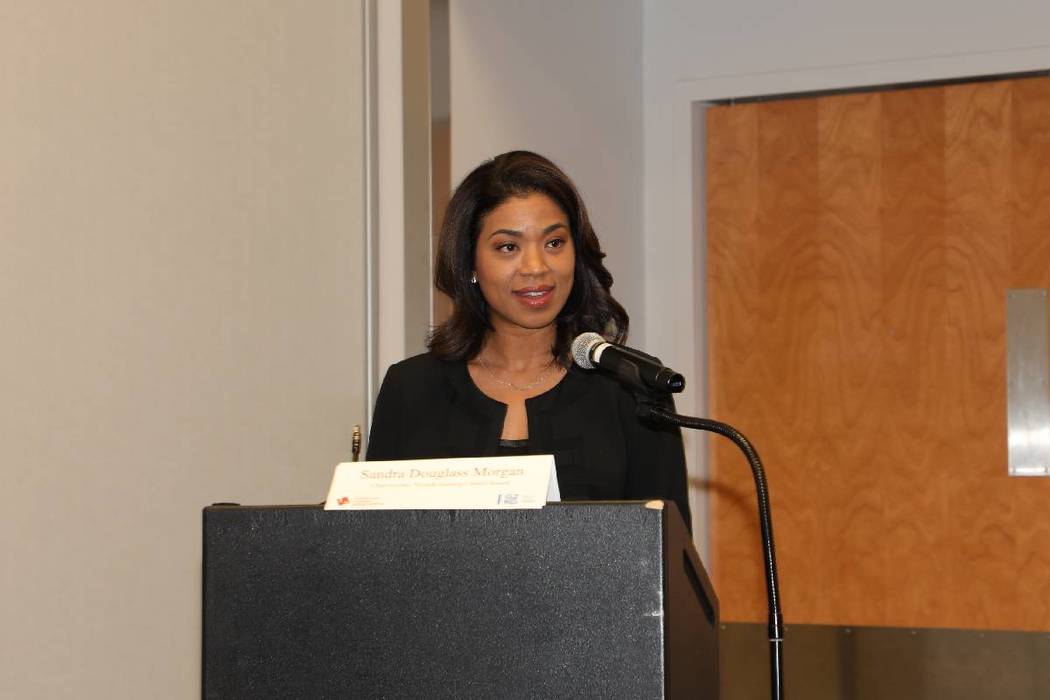Panel at UNLV addresses ways to promote responsible gaming

It’s not hard to find somewhere to gamble in Las Vegas, whether it’s in a casino, the airport, or even a grocery store.
That accessibility has proven to be an issue for some.
About 6 percent of the Nevada adult population has a gambling problem — about two to three times the rate of any other state — according to Carol O’Hare, executive director of the Nevada Council on Problem Gambling. And with the legalization of sports betting quickly spreading across the U.S. — 13 states now allow sports wagering— experts say it could open the door for more problem gambling.
“You’re normalizing this now. There will most likely be some people who get involved in this form of gambling now who might not have done that without the legal opportunity,” O’Hare said. “Developing these very clear, helpful appropriate messages and resources (on responsible gambling) will be important to that industry.”
In the midst of the 22nd annual Responsible Gaming Education Week, the American Gaming Association hosted a panel Thursday morning that drew together industry leaders for a discussion on ways to promote responsible gaming.
Sports betting
Panelist Scott Warfield, managing director of gaming for NASCAR, said that while regulated sports betting presents opportunities for sports leagues — such as keeping fans engaged — it also poses challenges.
“Those in-play, in-race prop bets are really interesting … (but) we want to make sure we’re doing it the right way because the nature of that type of betting,” he said during the event at the UNLV International Gaming Institute. “We want to provide (our fans) engagement opportunities, but we want them to do it responsibly.”
Subpopulations such as youth, elderly and veterans face a higher risk of addiction with sports wagering, according to Russell Sanna, executive director of the National Center for Responsible Gaming. In addition, with so many states allowing mobile sports betting, Sanna said it’s “a huge unknown” how that could impact the level of addiction.
“You’re by yourself, so there’s no feedback. There’s nobody telling you you’re crazy to bet that much,” he said.
But Sanna said if problem gambling trends during the expansion of sports betting follow trends seen during the era of casino expansion in the 1990s, he doesn’t expect to see a long-term increase in problem gambling.
“The prevalence rate of gambling disorder does not increase in relation to the gambling opportunities. It stays around that 1 to 1.5 percent,” he said. “When new gambling opportunity opens, you’ll see a little blip, and then it goes back down to that level.”
Problem gamblers can exist with or without legal gambling, according to O’Hare.
“The people who are at risk are here now. The people who already have problems have it now,” she said in an interview after the panel discussion. “I think (legalization) may shine a light differently on sports betting. It might bring much more effort for responsible gaming initiatives into that arena.”
Solutions
Panelists said additional research could help address the issue.
“I think the area of problem gambling research is young. I think the area of responsible gambling research is almost nonexistent,” said panelist Alan Feldman, a distinguished fellow for the UNLV International Gaming Institute.
Preventative efforts are being made by companies within the gambling industry, according to Virginia McDowell, non-executive director for gaming operator GVC Holdings. For example, the company is rolling out a youth education program in the United Kingdom to talk about responsible gaming.
“It’s not enough to talk about it with your existing base. You have to talk to younger people,” she said.
Feldman said it’s also important for the industry to be more assertive about bringing these conversations to light, especially as sports betting becomes normalized.
“The industry broadly needs to be much more assertive, much more out in the open … about responsible gaming to all consumers,” he said.
But solutions need to come from more than just the gaming companies, according to O’Hare, who was not on the panel.
“There is no silver bullet,” she said. “It takes gaming regulators, it takes gaming operators to put into place those corporate social responsibility practices, it takes institutions to do the research, it takes the community. … No one individual stakeholder can solve this.”
Contact Bailey Schulz at bschulz@reviewjournal.com or 702-383-0233. Follow @bailey_schulz on Twitter.